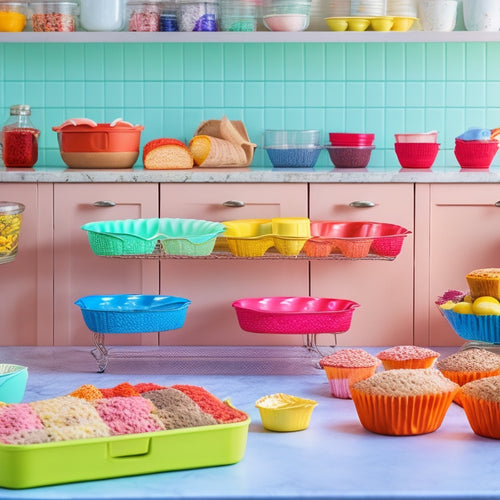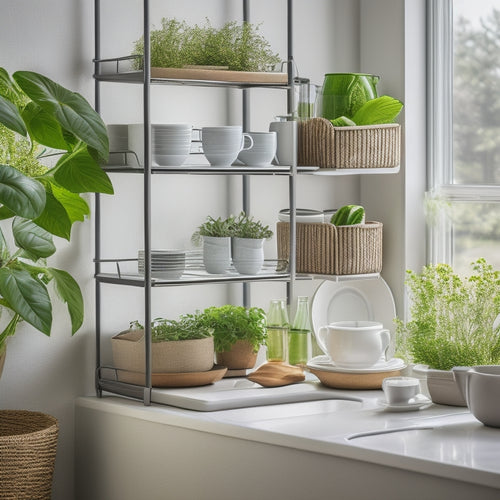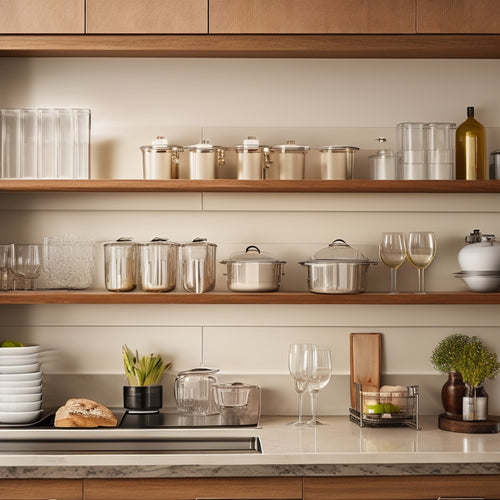
Revolutionize Your Family's Survival With This Guide
Share
Having an all-encompassing family survival plan is vital in today's uncertain world. A well-thought-out emergency preparedness plan, including safe zones, necessary supplies, and a communication protocol, is essential. Diversifying your food supply, maintaining a well-stocked medical kit, and implementing home power and security strategies can guarantee your family's survival. However, common mistakes, such as underestimating emergency duration and neglecting unique family needs, can compromise survival. By following expert guidelines and staying informed, you can transform your family's survival and be prepared for any crisis. Next, discover the crucial steps to safeguard your family's future.
Key Takeaways
• Develop a comprehensive emergency preparedness plan that includes a communication protocol and safe zones within the home.
• Stockpile non-perishable food items, build community support, and ensure long-term sustainability for your family's needs.
• Maintain a well-stocked medical kit with basic supplies, equipment, and prescription medications to handle medical emergencies.
• Implement energy conservation measures, strengthen doors and windows, and develop a backup power plan for home security.
• Stay informed, vigilant, and prepared by regularly updating emergency plans and supplies to avoid critical survival mistakes.
Emergency Preparedness Essentials
Having a well-thought-out emergency preparedness plan in place is essential to ensuring your family's safety and well-being during crises.
Shelter preparation is a critical component of this plan, involving the identification of safe zones within the home and the provision of necessary supplies such as first aid kits, flashlights, and batteries.
Communication planning is equally important, as it enables family members to stay in touch and coordinate their actions during an emergency.
This includes designating a meeting point, establishing a communication protocol, and having a reliable means of communication, such as a two-way radio or a fully charged cell phone.
Food Storage and Security
Properly storing and securing food is crucial to safeguarding your family's survival during an emergency lockdown, as it provides the necessary sustenance to maintain energy and health. A well-planned food storage system guarantees long-term sustainability, allowing your family to thrive even in the most challenging situations.
To achieve this, focus on the following key aspects:
-
Diversify Your Food Supply: Stockpile a variety of non-perishable food items, including canned goods, dried fruits, and nuts.
-
Store Food Properly: Keep food in a cool, dry place, shielded from pests and moisture.
-
Build Community Support: Network with neighbors and like-minded individuals to establish a support system for food sharing and trading during extended emergencies.
Medical Readiness for Crises
A well-stocked medical kit is vital for addressing unexpected injuries and illnesses that may arise during an emergency lockdown. It allows you to provide vital care and stabilize patients until professional medical help becomes available.
A detailed medical kit should include basic medical supplies, such as bandages, antiseptic wipes, and pain relievers, as well as equipment for more serious injuries, like splints and tourniquets. It's also important to have a first aid guide on hand to make sure you're providing proper care.
Additionally, consider including prescription medications, glasses, and contact lenses in your kit. By having a well-stocked medical kit, you'll be better prepared to handle medical emergencies and keep your family safe during a crisis.
Home Power and Security Strategies
In the event of an emergency lockdown, a reliable power source and a secure home environment are crucial for your family's survival. A well-thought-out strategy for both can make all the difference between safety and chaos. A thorough plan for home power and security is essential to guarantee your family's well-being during a crisis.
Here are key strategies to ponder:
-
Implement energy conservation measures: Invest in energy-efficient appliances and lighting to decrease energy consumption and prolong the life of your power source.
-
Install security measures: Strengthen doors and windows, and contemplate investing in a home security system to deter potential intruders.
-
Develop a backup power plan: Invest in a portable generator or solar panels to ensure a dependable power source during an extended emergency.
Avoiding Survival Mistakes
What distinguishes a well-prepared family from one that's caught off guard in an emergency is often the avoidance of critical mistakes that can compromise survival. Prepping misconceptions and survival misconceptions can be detrimental to your family's safety.
One common mistake is underestimating the duration of an emergency, leading to inadequate food and water storage. Another mistake is failing to take into account the unique needs of family members, such as infants, elderly, or those with disabilities.
Additionally, neglecting to maintain and update emergency plans and supplies can render them ineffective. By recognizing and avoiding these common mistakes, you can ensure your family's survival and well-being during crises.
Stay informed, stay vigilant, and stay prepared to overcome any obstacle that comes your way.
Frequently Asked Questions
Can I Prep for an Emergency on a Tight Budget?
When prepping on a tight budget, focus on DIY survival strategies, such as preserving food through canning and dehydrating, and repurposing household items for emergency uses, to maximize resources without breaking the bank.
How Do I Convince My Family to Take Preparedness Seriously?
To convince your family to take preparedness seriously, initiate a calm and informative family discussion, highlighting the importance of a collective preparedness commitment.
What Are the Most Critical Skills for a Beginner to Learn?
For beginners, mastering shelter building and wilderness navigation guarantees a safe haven, while fire starting and water purification skills provide essential sustenance, forming a solid foundation for survival in emergency situations.
Can I Use a Small Space for Emergency Food Storage?
When using a small space for emergency food storage, employ small space solutions and organization techniques to maximize capacity. Implement a rotation system to guarantee older items are consumed before they expire, and label expiration dates to maintain a fresh supply.
What's the Best Way to Stay Informed During a Crisis?
During a crisis, stay informed through emergency communication networks, community support, and reliable news sources, receiving timely emergency alerts to guarantee situational awareness and make informed decisions to safeguard your family's well-being.
Related Posts
-

Roll-Out Trays for Organizing Baking Supplies
Roll-out trays are perfect for organizing your baking supplies, making your kitchen more efficient. They maximize spa...
-

Tiered Dish Rack Organizers for Compact Spaces
Tiered dish rack organizers are perfect for compact spaces, maximizing vertical storage while saving precious counter...
-

Pull-Out Cabinet Shelves for Dish Drainer Storage
Pull-out cabinet shelves are a revolutionary innovation for your dish drainer storage. They maximize vertical space a...


